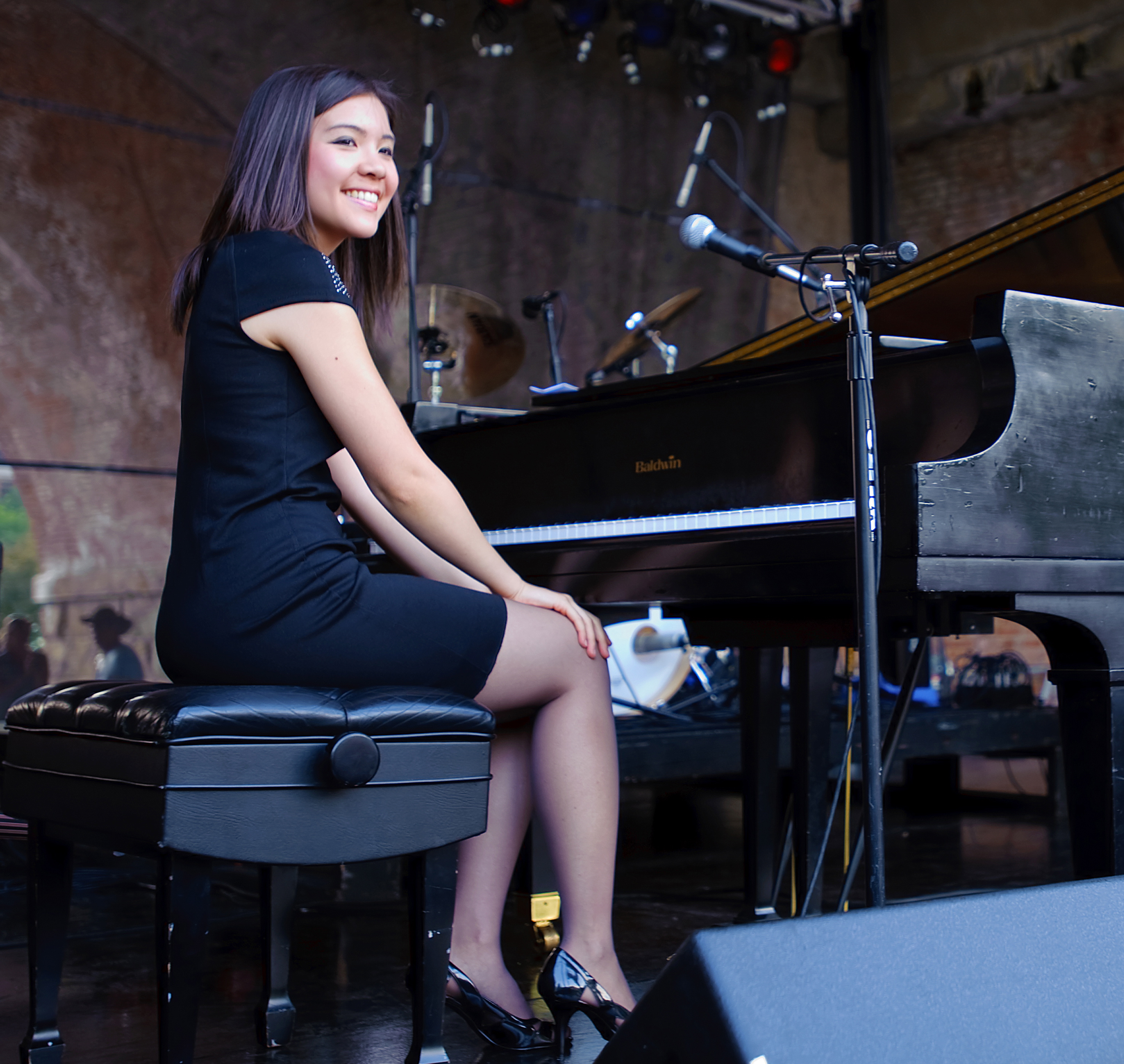
Don’t be afraid to pursue the thing that really makes you tick – the thing that really makes you come alive. If you are doing what you love, good things are going to happen…and you are going to find your success and purpose.
1. What led you to the mission of being a stride pianist?
I’ve played the piano since I was five years old. I studied classical piano. My real interest in stride piano came about when my high school piano teacher introduced me to the stride piano style. I took to it right away. The style is so happy and challenging to play. People enjoy it and want to hear it.
When I was in college I was asked to play in Europe – in Switzerland in a small town outside of Zurich at a stride piano summit with five other pianists. They were all older and experienced and they were all men. They were so nice and inclusive. I saw them improvising together and using stride piano as a living language instead of just something from the twenties and thirties – old style. They put their heart and soul into playing. This woke me up to all the passion I have for playing stride.
When I first started playing stride, I was told to listen to the old recordings of the great masters playing this style – from the twenties to the later generations interpretive style. Listening is the best way to get in touch with and capture the feeling of stride. I studied living pianists and found out which ones I like the best. I tracked them down and asked them questions. I learned by spending time with them.
My parents were supportive of my music and were always encouraging me to go and talk to other stride pianists and to play with them. That was key in my growth.
2. What does this mission mean to you?
This genre is a music that is for life and joy. It’s an American type of music. I’m carrying on a really important tradition and bringing to listeners a really important part of piano history. I love playing stride. I love this type of music and the emotions it brings people and it brings me. That’s why I love to play it. Playing is my purpose.
3. What was your best day as a stride pianist?
It’s hard for me to say one particular experience  was my best day. I have so many when I give a concert. The best experiences I’ve had are when I’ve played with other pianists – especially when we are playing a duet on one or two pianos. I’m able to communicate in this language on stage and in front of an audience. That is one of the most satisfying things I do. I have the chance now to play with people I have admired on records and at concerts. I’m able to play with these people in concerts. That experience has been the best of being a stride pianist. (To see Stephanie Trick playing “Liza” by George Gershwin, click here.)
was my best day. I have so many when I give a concert. The best experiences I’ve had are when I’ve played with other pianists – especially when we are playing a duet on one or two pianos. I’m able to communicate in this language on stage and in front of an audience. That is one of the most satisfying things I do. I have the chance now to play with people I have admired on records and at concerts. I’m able to play with these people in concerts. That experience has been the best of being a stride pianist. (To see Stephanie Trick playing “Liza” by George Gershwin, click here.)
4. What was your worst day as a stride pianist?
I don’t really think of my experiences in terms of “worst” days. I can tell you about one experience I had in Switzerland. I was asked to play and I realized that I had a lot to learn. I was hungry to learn as much as I could and practiced as hard as I could. I tried to arrive at a higher level then I was before that experience. I had a challenging time. That was not easy to go through, but I learned from this experience. It became one of the most important times in my life as a stride pianist. It really determined what I am doing now.
5. How did you survive your worst day?
As an artist you have some days that are better than others. You always know that your goal is to  keep growing. You are always going to be a student. You are always going to be learning. Some days you might not have your best performance. You have to take the best you can from that experience and try to learn from it and not hit yourself over the head too hard.
keep growing. You are always going to be a student. You are always going to be learning. Some days you might not have your best performance. You have to take the best you can from that experience and try to learn from it and not hit yourself over the head too hard.
I would tell someone, “Don’t be afraid to pursue the thing that really makes you tick – the thing that really makes you come alive.” You may not know the path you are going to take.
What I have done is not traditional. I didn’t know exactly what my path was going to look like coming out of college. I had supportive parents and they helped me get on my feet while I was pursuing playing stride piano. But the point is that you don’t need to know how this is going to unfold for you. If you are doing what you love, good things are going to happen and you should just do what you love to the nth degree. You will find your success and purpose. (To learn more about Stephanie, visit her website: http://www.stephanietrick.com)
- « Previous person: Tina Scheer
- » Next person: Eve Rudolph